Tokyo Shibuya-Ku
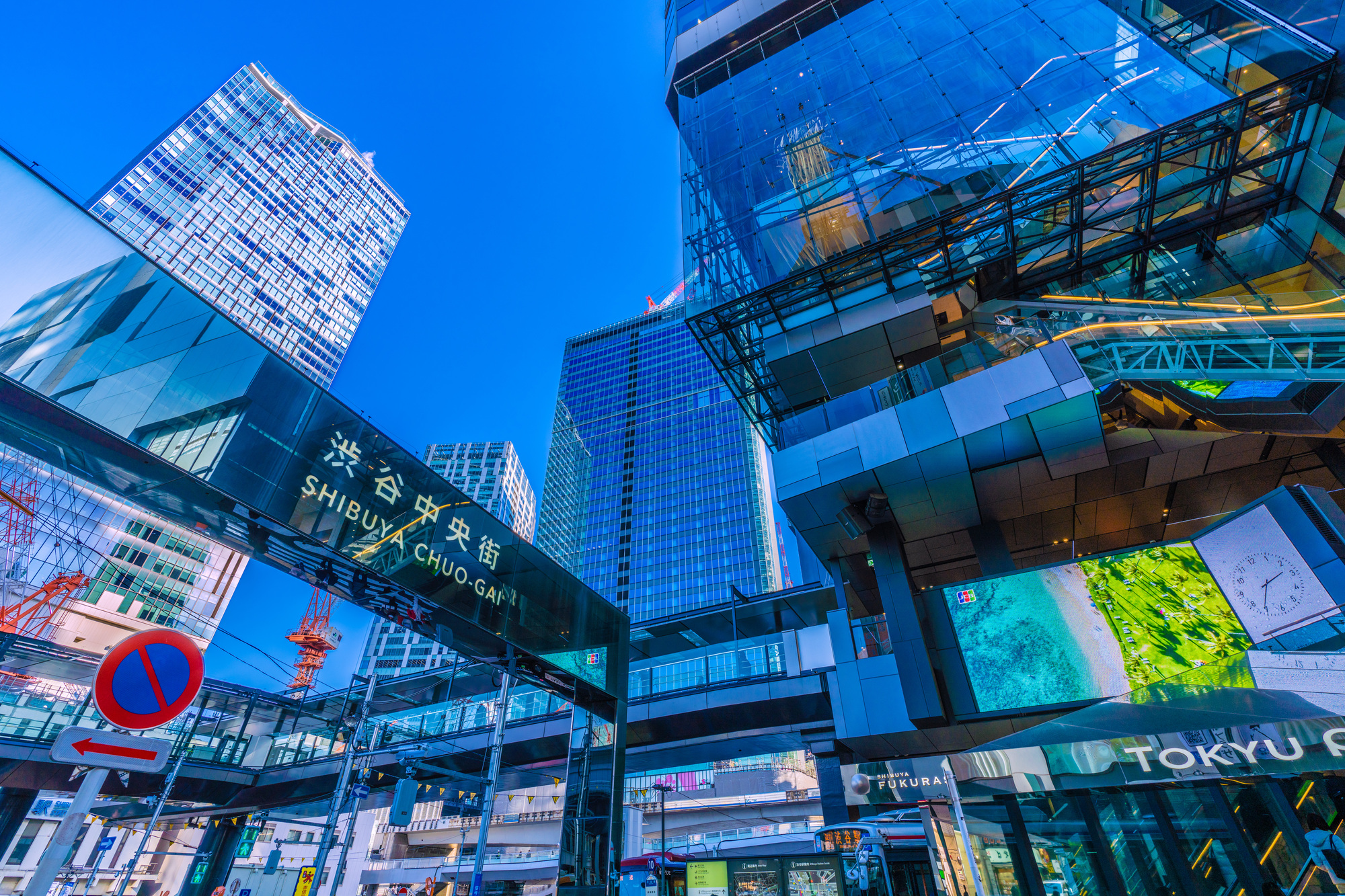
Many large office and commercial buildings such as Shibuya Hikarie and Shibuya Scramble Square were built in front of Shibuya Station. Shibuya is known as a fashion district and attracts many visitors, especially to "Shibuya 109". There is a high-end residential area with a calm atmosphere around it, and it is an area blessed with nature such as Yoyogi Park.
- Yoyogi-Uehara
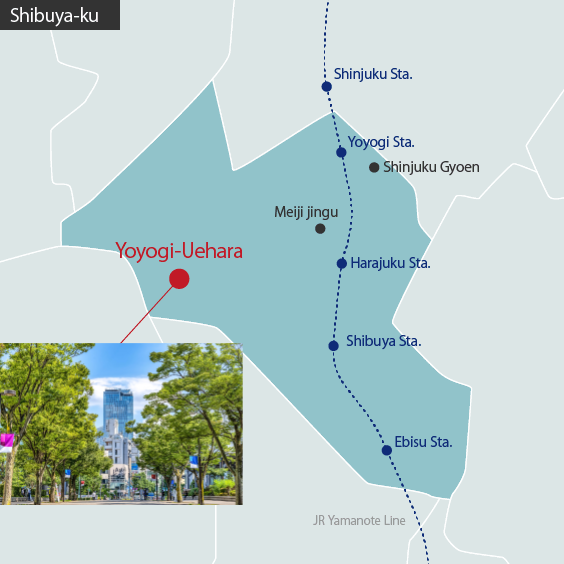
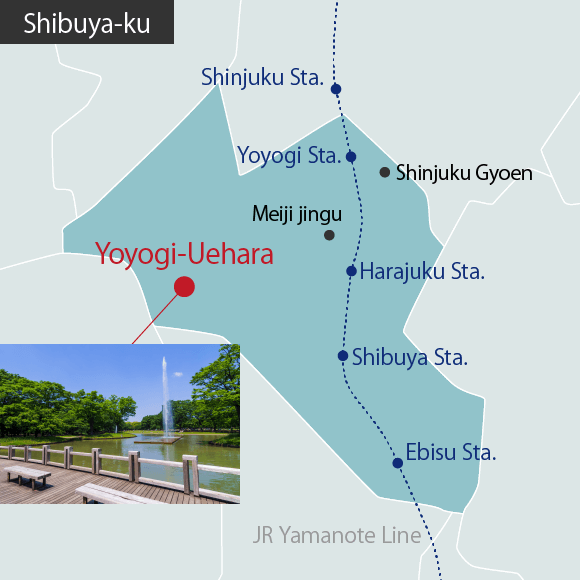
Located between Shinjuku and Harajuku, Yoyogi area is blessed with convenient transportation. You can walk to Shinjuku, Harajuku, Meiji-jingumae, and Omotesando. There is a high-end residential area around Yoyogi Uehara Station. The green space of "Yoyogi Park" is also nearby, offering urban convenience and abundant nature.
Hide Details
- Daikanyama
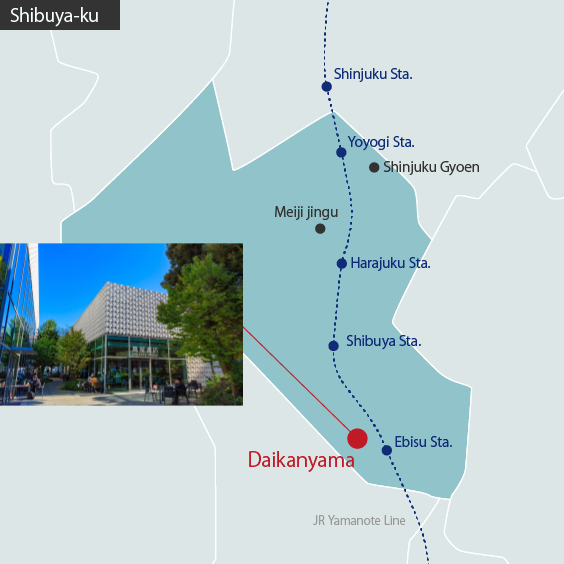
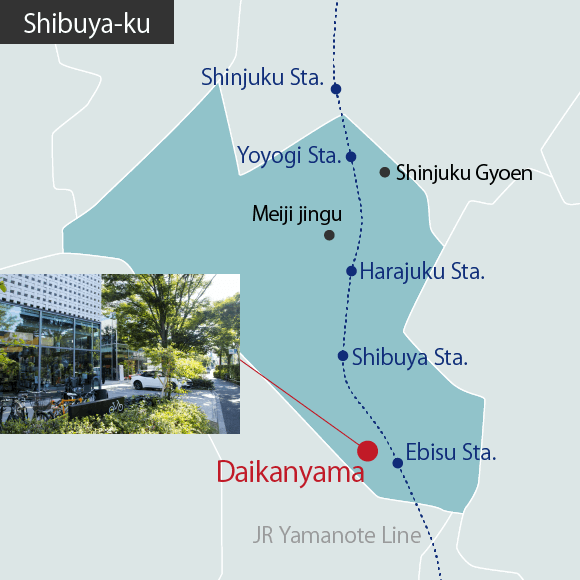
Located near Shibuya and Ebisu, Daikanyama is a stylish city dotted with high-end boutiques, restaurants and cafes and is a popular residential area. Around Daikanyama Station, there are Daikanyama Address and Daikanyama Hillside Terrace, which have residential and shopping facilities. There are also embassies from various countries and is characterized by a calm townscape with an international atmosphere.
Hide Details
- Ebisu
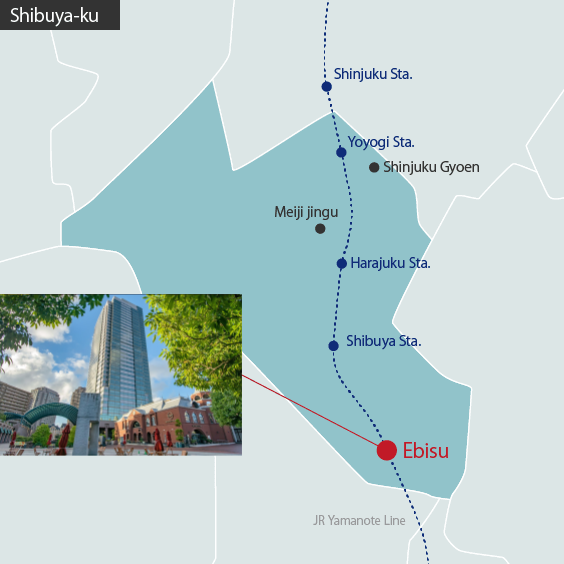
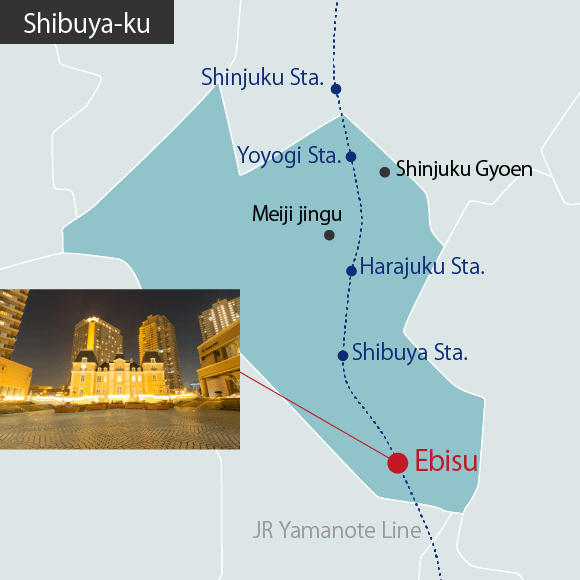
Ebisu Garden Place, a shopping and movie complex, and the area around Ebisu Station on the Yamanote Line are popular locations with many shops. In addition, the upscale residential area known as Chojamaru is lined with high-end, low-rise condominiums and single-family houses, giving the area a sophisticated atmosphere.
Hide Details
- Hiroo
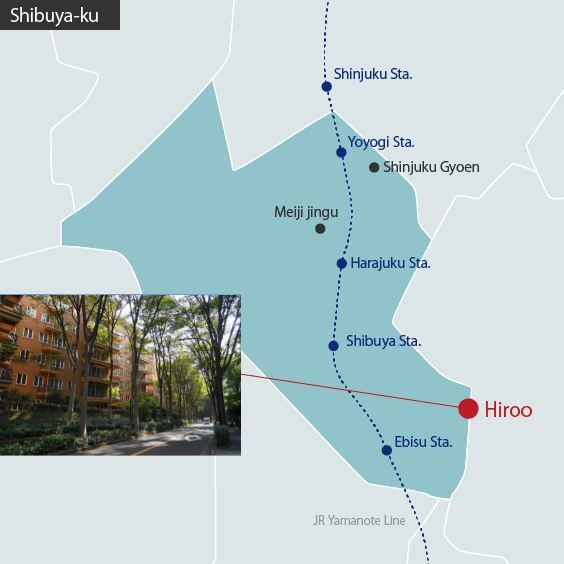
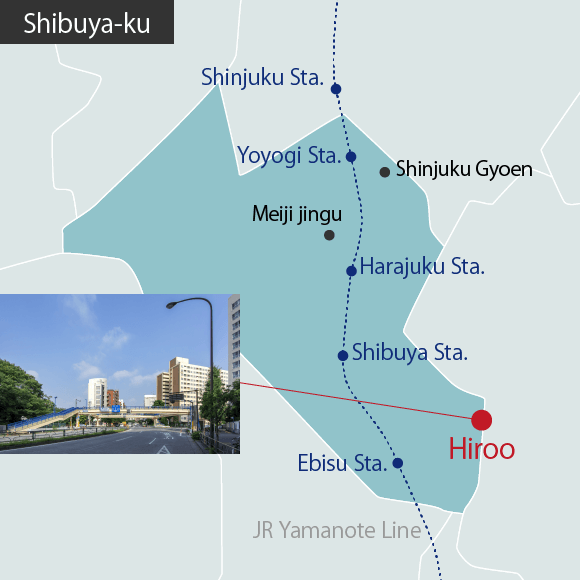
Many embassies are located around Hiroo and many people from abroad live around this area. There are many educational facilities such as international schools and University of the Sacred Heart, as well as supermarkets and medical facilities that handle many imported products. It is a popular luxury residential area where you can enjoy the greenery of Arisugawa-no-miya Memorial Park.
Hide Details


